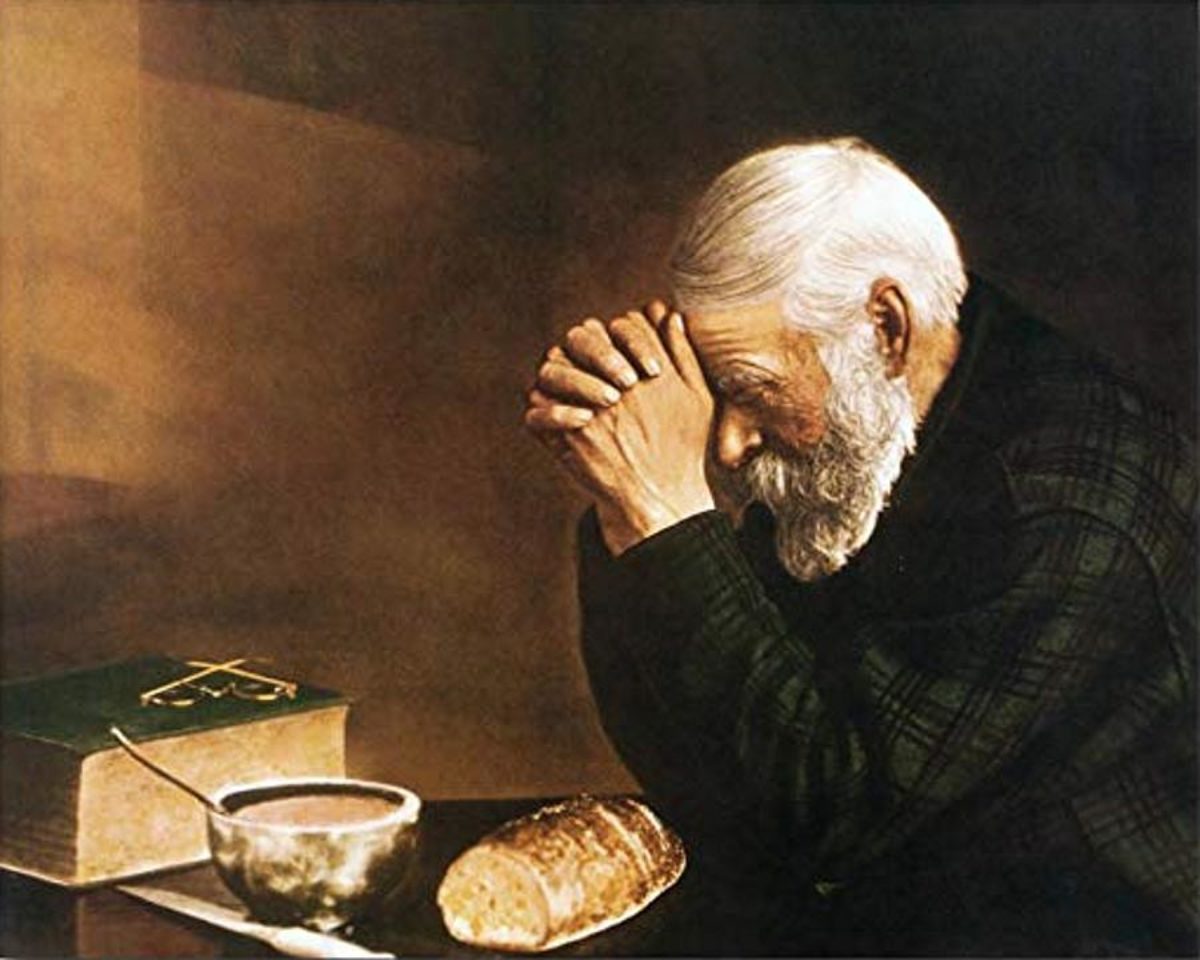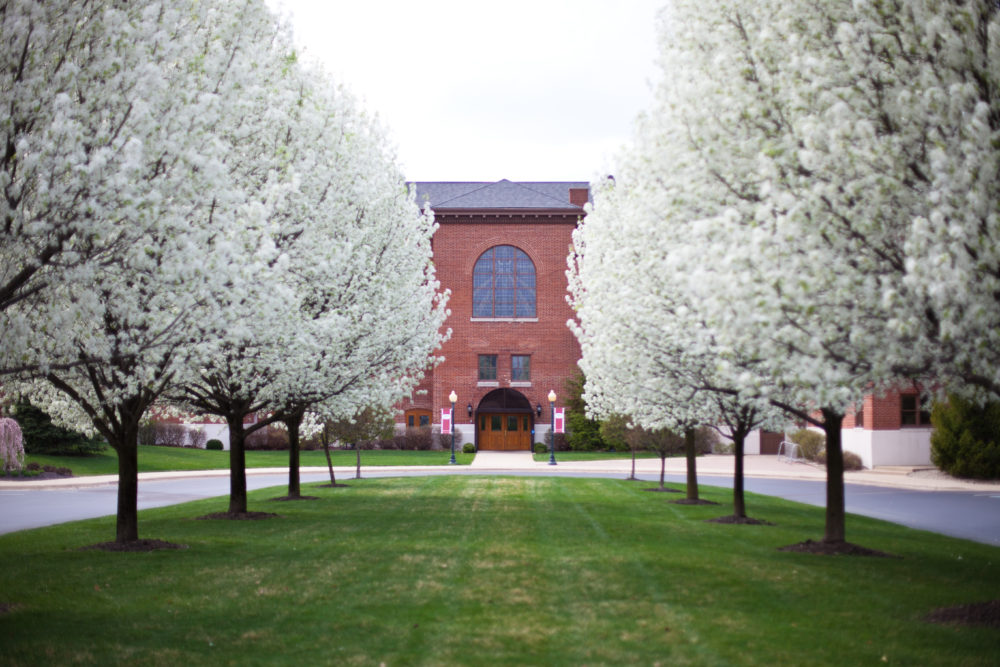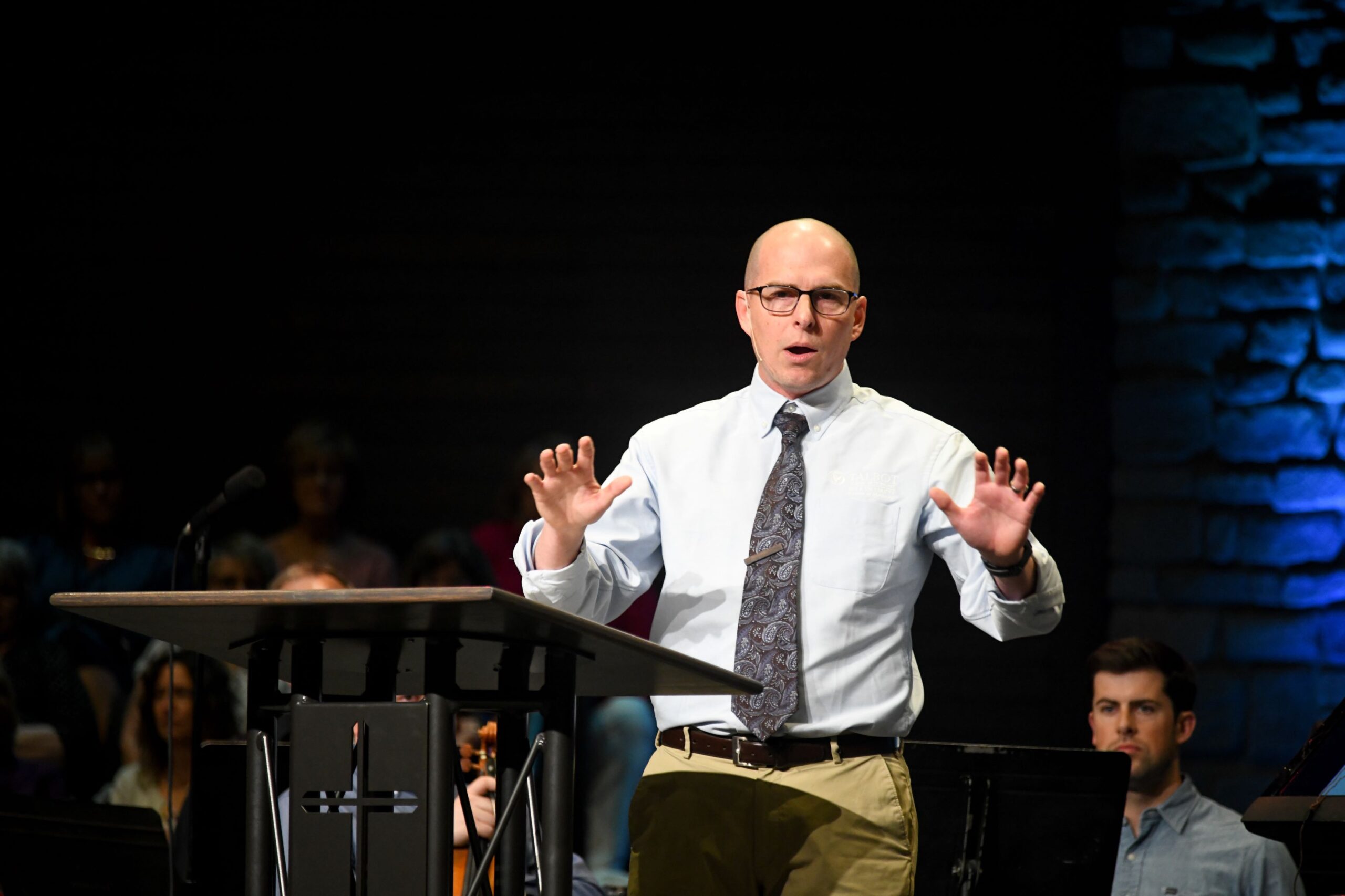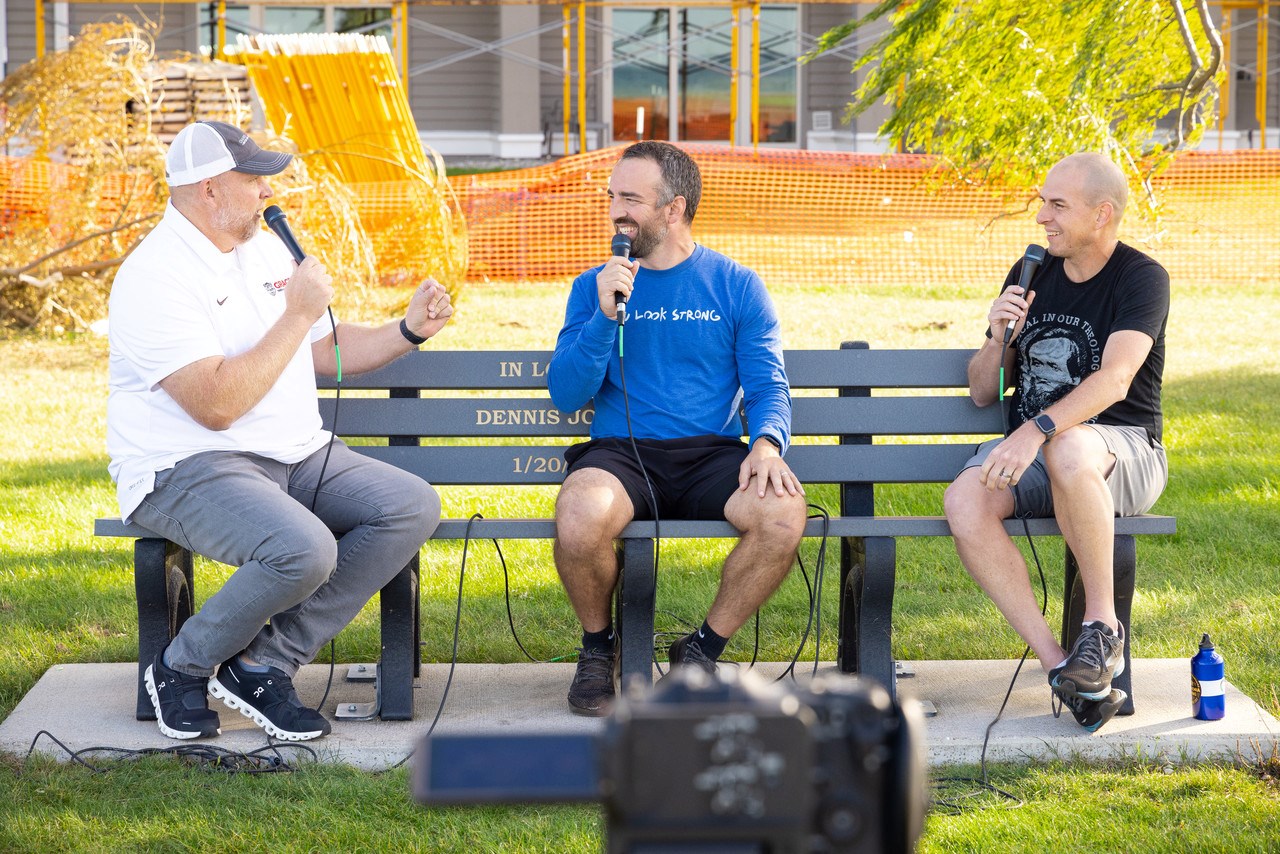April 19, 2021
Church Ministry: Leading Your Congregation in Meaningful Prayer
Written By Grace Seminary
Tagged With Preaching & Pastoring Ministry Dr. Tiberius Rata

As a pastor, it is your job to help lead those in your congregation into spiritually forming habits and practices. Without a doubt, one of the most essential keys to spiritual formation in church ministry is prayer. But how do you explain prayer to those who have not grown up in church? How do you reteach those who have misconceptions about how to pray? These are good questions. Questions pastors should be equipped to answer. So here are four basic approaches to prayer that every pastor should keep central to his church ministry, when you pray.
When you pray…adore Him.
When Jesus teaches His disciples how to pray, He first teaches them how NOT to pray. “When you pray, you must not be like the hypocrites. For they love to stand and pray in the synagogues and at the street corners, that they may be seen by others…” (Matthew 6:5). The disciples of Jesus must develop a secret prayer life. Jesus said, “But when you pray, go into your room and shut the door and pray to your Father who is in secret. And your Father who is in secret will reward you” (Matthew 6:6). The applause of heaven is much better than the applause of earth.
Then Jesus teaches us how to pray. “Pray then like this: ‘Our Father in heaven, hallowed be your name” (Matthew 6:9). God is described in Scriptures in terms of fatherhood. “A father of the fatherless, a defender of widows, is God…” (Psalm 68:5). Other religions like Islam, Buddhism, and Hinduism do not call their god(s) “Father.” Yahweh alone is called “Father.” Prayer involves closeness, and prayer also involves adoration. Renowned English pastor and author Thomas Watson said, “Praising God is one of the highest and purest acts of religion. In prayer we act like men; in praise, we act like angels!” Oh, how our lives would change if we would set aside a day or two when we would just pray prayers of adoration, praising God for who He is, and what He has done!
As you lead in church ministry, when you pray, call Him “Father.”

When you pray…submit to Him.
When Jesus teaches His disciples how to pray, He reminds them that God is their Father. Then Jesus continues to teach that that God is not just their Father but He is also their King. Understanding this, if the disciples are to learn how to live as part of His Kingdom, they need to submit to Him as their King. “Your Kingdom come, your will be done, on earth as is it in heaven” (Matthew 6:10). We might ask, “Your kingdom come?” I thought the kingdom was already here! Didn’t the gospel writer affirm that Jesus came to preach the gospel of the Kingdom of God? (Mark 1:14-15). Didn’t Jesus say, “The Kingdom of God is within you?” (Luke 17:20-21). The answer is “Yes!” The kingdom is here but not yet fully here.
Jesus is King now and we must submit to Him now, but that does not mean that He is physically reigning on the Earth. The full fulfillment of Jesus’ kingship will come at His second coming. Until that day, the job of the Christian is to serve Jesus as King with prayer and faith until the King Himself returns (Luke 19:11-27). On that day, He will reign forever and every knee shall bow and every tongue shall confess that Jesus Christ IS Lord! (Philippians 2:10-11).
As you lead the congregation in prayer in church ministry, call Him “King.”
When you pray…ask Him.
Since God is our heavenly Father, we can ask Him for anything, just like an earthly child asks his earthly father for anything. Comparing God to an earthly father, Jesus says, “Which one of you, if his son asks him for bread, will give him a stone? Or if he asks for a fish, will give him a serpent? If you then, who are evil, know how to give good gifts to your children, how much more will your Father who is in heaven give good things to those who ask Him!” (Matthew 6:11).
God is not just the Father, and God is not just the King. God is also Yahweh-Yireh, the great Provider (literally: the LORD will Provide), and He wants us to confess our daily dependence on Him by asking, “Give us this day our daily bread” (Matthew 6:11). Thomas Barnardo was an Irishman in the late 1800s who opened a house for orphans. By the time of his death in 1905, Barnardo had provided shelter and refuge to nearly 60,000 children. In recounting God’s provision during his 39 years of ministry, he wrote, “What a wonderful experience mine has been during these thirty-nine years! What inexhaustible supplies have been vouchsafed to the work in my hands. How amazing to mere unaided human reason have been the answers to prayer, even when faith has almost failed and our timidity has begotten distrust instead of love and hope! And God has not failed us once!” God’s provision is unending for his people. He only wants us to call out to Him in our need.
When there are immediate and tangible needs in your church ministry, boldly and confidently approach the throne of grace, and ask Him to meet those needs.

When you pray…forgive and confess.
When Jesus teaches us how to pray He teaches us that prayer involves confession. Confession is necessary because the Bible teaches that we sin willfully. We need to ask forgiveness for those willful sins. The Bible also says that we can sin without knowing (Leviticus 5:17-18). Because sin separates us from God, we need to ask forgiveness for those sins as well. God’s grace extends to both types of sins, but Jesus also teaches that our forgiveness is contingent upon us forgiving those who wronged us.
Jesus addresses this in detail in his parable of the Unforgiving Servant. He explains the actions of a servant who owed his master a great sum of money and was unable to pay. The master, in compassion, forgave his debt. The servant, though, refused to forgive a much smaller debt from a fellow servant. When the master heard about his unforgiving actions towards his debtor, he imprisoned him until the debt could be paid. Jesus says, “So also my heavenly Father will do to every one of you if you do not forgive your brother from your heart” (Matthew 18:35). The importance of forgiveness is further emphasized in the fact that Jesus ends the prayer with the following warning. “For if you forgive others their trespasses, your heavenly Father will also forgive you, but if you do not forgive others their trespasses, neither will your Father forgive your trespasses” (Matthew 6:14-15).
In church ministry, there will always be misunderstandings but encourage those in your church to forgive and confess in prayer.
Prayer is just one aspect of spiritual formation in the church. For comprehensive training in church ministry leadership, learn more about our various church ministry degree options offered both residential and on-site at your church:
Master of Arts in Local Church Ministry – Residential
Master of Arts in Local Church Ministry – Online and In Your church
Tiberius Rata
Tiberius Rata, Associate Dean of the School of Ministry Studies and Professor of Old Testament Studies, focuses on instilling in students a love for God and His inerrant Word, remembering the words of Ezra 7:10: “For Ezra had set his heart to study the Law of the LORD, and to do it and to teach his statutes and rules in Israel.” Rata wants his ministry students to become pastors who can preach and teach God’s word passionately and accurately, with a strong foundation on the principles of Scripture so they can be pillars in their churches, leaders in their workplaces, and model citizens in their communities.
Share
Tagged With Preaching & Pastoring Ministry Dr. Tiberius Rata



